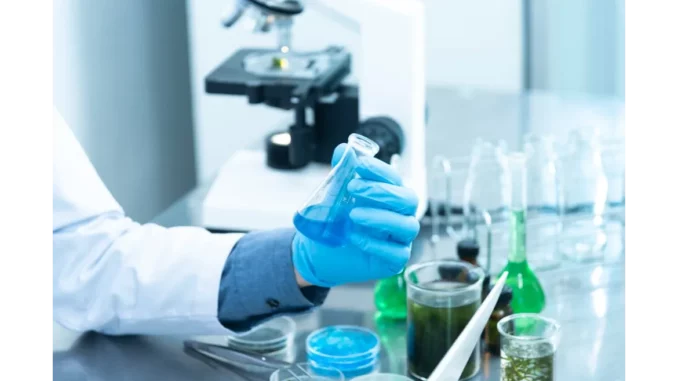
In the dynamic landscape of cancer research, the advent of organoid technology marks a significant shift towards personalised medicine. These three-dimensional constructs, meticulously cultivated from patient-specific cells, offer promising new avenues for revolutionising cancer treatment. By providing a more faithful representation of human tumours, organoids facilitate the development of tailored therapeutic strategies, potentially transforming patient outcomes.
Organoids originate from stem cells and can be cultivated from a variety of sources, including embryonic stem cells, induced pluripotent stem cells, somatic stem cells, as well as cancer cells themselves. These structures closely mimic the architecture and function of real tissues, serving as quasi-physiological models for human diseases, particularly cancer. The technology has garnered considerable attention due to its capacity to replicate the tumour microenvironment and encapsulate the heterogeneity of tumours—an essential aspect for comprehending cancer biology and crafting effective treatments. A notable advantage of organoids is their derivation from patient-specific cells, which allows for customised drug testing and treatment planning. Such an approach permits healthcare professionals to tailor therapies to the individual, accounting for the unique characteristics of their tumours, thus positioning organoids as an indispensable tool in the realm of precision medicine.
The applications of organoids in cancer treatment are expansive, spanning drug screening, biomarker discovery, and the investigation of drug resistance mechanisms. By offering a high-throughput system for evaluating potential therapeutics, organoids expedite the discovery of effective drugs while reducing unnecessary toxicity. In the realm of drug screening, organoids provide a more accurate representation of tumour biology compared to traditional two-dimensional cell culture models. They preserve the genetic diversity and phenotypic traits of the original tumour, allowing for a more reliable assessment of drug efficacy. This precision is particularly vital for identifying potent drug combinations and elucidating the mechanisms of drug resistance. Furthermore, organoids are pivotal in biomarker discovery. Through the analysis of their molecular and genetic profiles, researchers can pinpoint biomarkers that predict treatment response and disease progression, information that is crucial for the development of targeted therapies and the enhancement of patient outcomes.
The potential of organoids in precision medicine is profound. By offering a more physiologically relevant and personalised depiction of human tumours, they enable researchers to investigate individual patient responses to drugs and other therapeutic interventions. This methodology not only enhances the accuracy of treatment predictions but also improves the speed, reproducibility, and standardisation of assays. A notable example demonstrated the power of organoids when they were employed to identify an FDA-approved drug for a patient with triple-negative breast cancer. This intervention resulted in a complete response and a significant extension of progression-free survival, underscoring the clinical utility of organoids in guiding treatment decisions and highlighting their potential to revolutionise precision oncology.
Despite the promising prospects of organoids in cancer research, several challenges persist. A primary obstacle is the integration of organoid technology with genomic and transcriptomic data to deepen our understanding of drug resistance mechanisms and enhance therapeutic outcomes. Additionally, there is a burgeoning need to explore organoids-on-a-chip technology, which emulates the tumour microenvironment and allows for interactions between multiple organs and tissues. Another formidable challenge lies in the standardisation of organoid culture methodologies and the scalability of organoid production for large-scale drug screening and clinical applications. Addressing these hurdles is imperative for the broader adoption of organoid technology in cancer research and treatment.
In summation, organoid technology embodies a transformative advancement in cancer research, providing a sophisticated model for studying tumour biology and devising personalised treatment strategies. By capturing the clinical heterogeneity of tumours and offering insights into drug sensitivities, organoids hold the promise of improving the success rates of preclinical trials and accelerating the development of precision medicine. As research continues to advance, organoids are poised to play a pivotal role in the future of cancer treatment, offering hope for more effective therapies and improved patient outcomes.


Be the first to comment